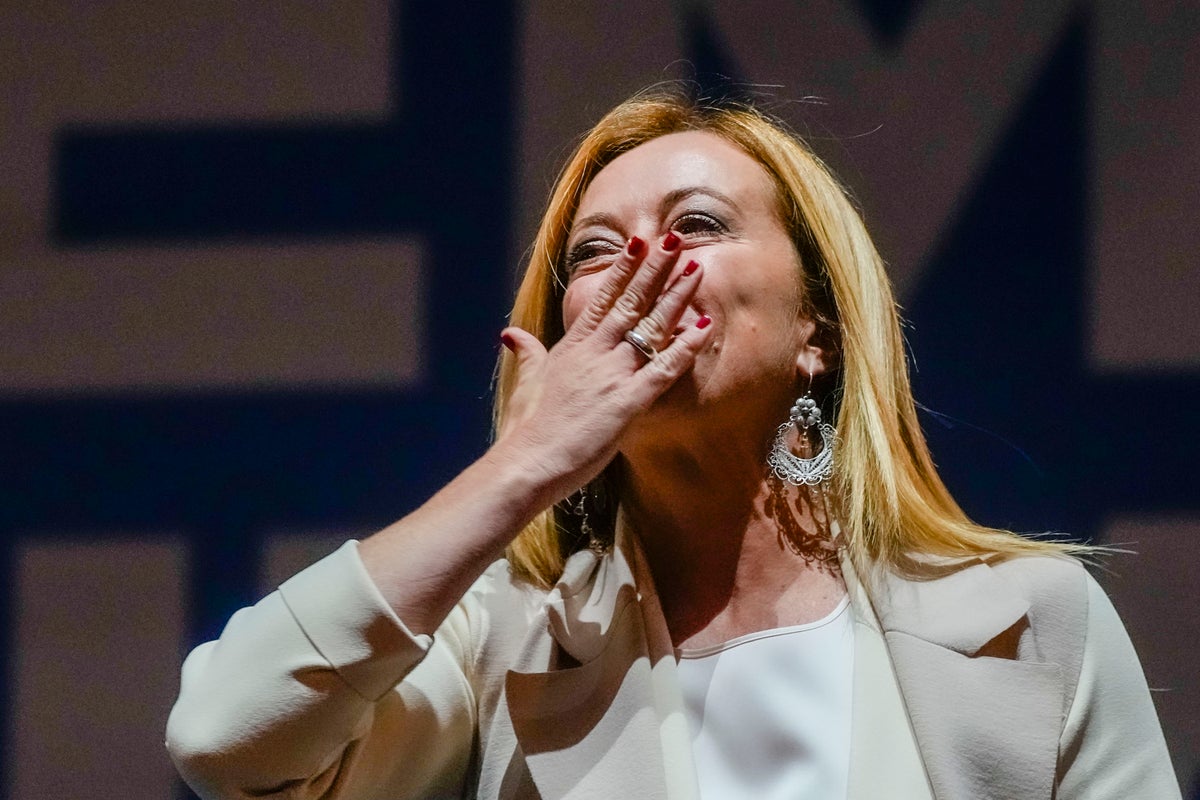
A right-wing alliance led by a party with neo-fascist roots has won a clear majority in Italy’s parliament, according to the first exit polls published after Sunday’s vote.
State broadcaster RAI said the bloc of conservative parties led by the Brothers of Italy party, which includes Matteo Salvini’s League and Silvio Berlusconi’s Forza Italia parties, won between 41 and 45 per cent – enough to guarantee control of both houses of Italy’s parliament.
If the final result reflects the exit polls, it will send shockwaves throughout Italian and European politics.
As a result, Ms Meloni will almost certainly become the first woman leader in Italy’s history, the latest high-profile female politician across the continent, and will lead the most far-right government elected by Italians since the Second World War.
Italy is the European Union’s third-largest economy and Ms Meloni’s victory comes at a critical time, as much of the continent reels from soaring energy bills, a repercussion of the war in Ukraine, and the West’s fragile resolve to stand united against Russian aggression is being tested.
The comprehensive victory would also likely mean a return to the political top table for the veteran Berlusconi, who turns 86 on Thursday, and a senior government position for anti-immigration Salvini.
Ms Meloni has vowed to continue Rome’s support for Kyiv, but suspicions remain that pressure from Mr Salvini and Mr Berlusconi, who have both championed Russian president Vladimir Putin in the recent past, could see Italy’s support for Ukraine weaken. Last week Mr Berlusconi claimed Russia’s president was “pushed” into war.
One of the first leaders to congratulate Ms Meloni was Hungary’s controversial leader Viktor Orban, who wrote on Twitter: “In these difficult times, we need more than ever friends who share a common vision and approach to Europe’s challenges.”
RAI added that the centre-left alliance of former Democratic Party premier Enrico Letta, gained 29.5 per cent of the vote. The broadcaster said the exit poll had a margin of error of 3.5 per cent. The Five Star Movement are in third place, with 16.5 per cent.
The result caps a meteoric rise for Ms Meloni, who only got 4 per cent of the votes at the last general election.
Her traditional message has appealed to voters struggling with a cost of living crisis and an electorate that has shunned more established parties in recent years. Italian businesses and households are struggling to pay gas and electricity bills, which in some cases are 10 times higher than last year’s.
Ms Meloni campaigned by claiming: “I am Giorgia, I am a woman, I am a mother, I am Italian, I am a Christian.”
She has sought to reassure people of her party’s past as the Brothers of Italy was forged from a neo-fascist party formed shortly after the war by nostalgists of Fascist dictator Benito Mussolini.
But a strong mandate could allow her, say critics, to reverse any progressive laws in areas such as LGBT+ and abortion, despite reassurances during campaigning. A crackdown on immigration is a certainty.

It is also likely that her government could form a powerful right-wing European alliance with parties including Poland’s ruling nationalist Law and Justice party, the anti-immigrant Sweden Democrats and Spain’s far-right Vox party.
Her victory is also a demonstration of the growing importance of far-right parties – and ideas – in Europe, even those that did not gain power such as France’s National Rally party, headed by Marine Le Pen, who won 40 per cent of the vote in the presidential election earlier this year.
Ms Meloni has been anti-EU in some of her rhetoric during the campaign, but it is unlikely her victory will lead to any great difference in Italy’s relations with Brussels as it is reliant on the EU’s post-pandemic funds.
The election was held six months early after premier Mario Draghi’s pandemic unity government collapsed in late July.
Full results are expected by early Monday.







